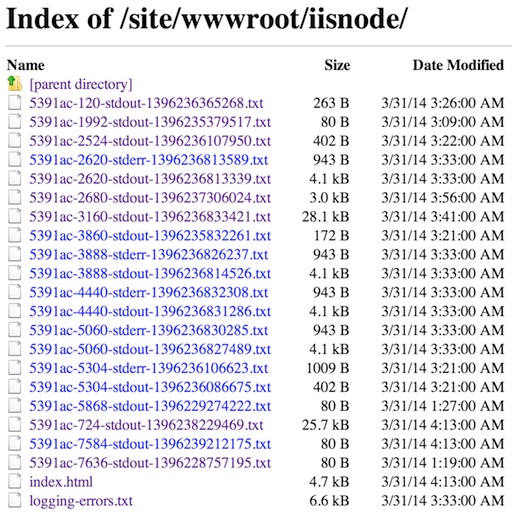PCjs Machines
Home of the original IBM PC emulator for browsers.

PCjs Blog
Running on Azure
Publishing a Node-based site to Azure was painless, thanks to their friendly web portal and GitHub integration. Getting a fully operational site, however, took a bit more time.
Unfortunately, because Azure’s underlying server technology is Windows-based (IIS), some of the same Windows/Unix portability problems that have plagued us for decades still plague us today: carriage returns and backslashes.
Even though all PCjs text files in my project contain only linefeeds, IIS would serve them up with CR/LF instead. I first noticed this on the client side, when an XML file retrieved via XMLHttpRequest() came back full of CR/LFs, and later on the server side, when fs.readFile() returned a Markdown file filled with CR/LFs.
I wondered if the CR/LF transformation had happened when Azure pulled all my files from GitHub, because while I can understand some whitespace inconsistencies across web servers, I would never expect file system calls on the server to modify file contents.
I finally confirmed that the files were indeed modified on the server, by using Azure’s FTP browser. For example,
us83-buttons-minimal.xml is currently 622 bytes locally, but on the
Azure server, the reported size is 632 bytes – one extra CR for each of the file’s 10 lines. After a little more
digging, I learned something new about Git: it
has a setting called core.autocrlf which, for me on OS X, defaults to input (meaning “convert CR/LF to LF on commit
but do NOT convert LF back to CR/LF on check-out”). But Azure apparently sets this to true, causing all LFs to be
converted to CR/LF.
Regarding slashes, even when path components contained only slashes, path.join() would return paths with backslashes. And unfortunately, this behavior varies from Node module to module. For example, I use the NPM glob module, and even when the input path to glob() contains backslashes, its output paths do not.
In the process of fixing those portability issues, I also had some trouble getting Azure logging to work as
documented. Setting loggingEnabled: true in /IISNode.yml would generate logs in /site/wwwroot/iisnode/,
but the logs were numerous and poorly organized.
And the Azure command-line tool that was supposed to enable real-time log-streaming to the console:
azure site log tail pcjs
would happily report:
Welcome, you are now connected to log-streaming service
but it would NEVER display anything but deployment information. Instead, I had to browse the log files using Azure’s “FTP DIAGNOSTIC LOGS” link on the web portal – which presents the logs as one big, ugly, fragmented mess:

Sigh. But at least the site is up and fully operational now.
Jeff Parsons
Mar 30, 2014